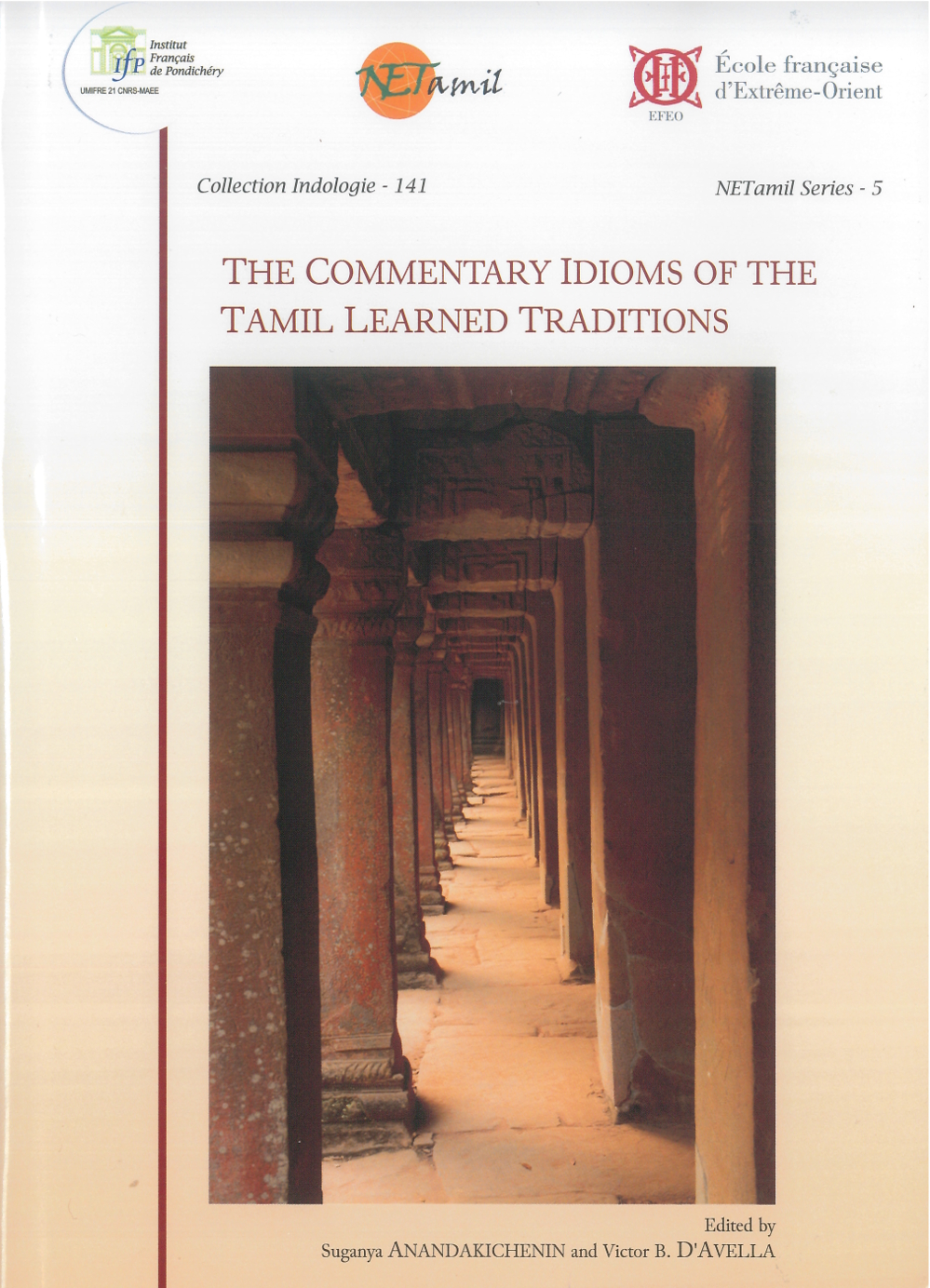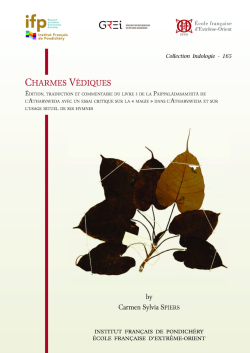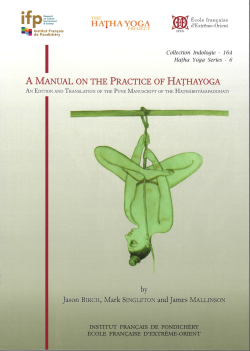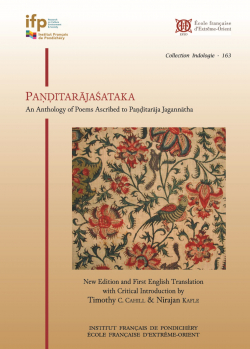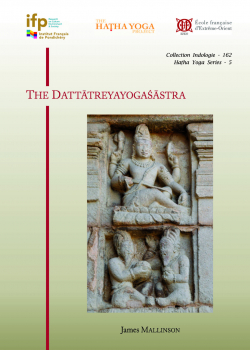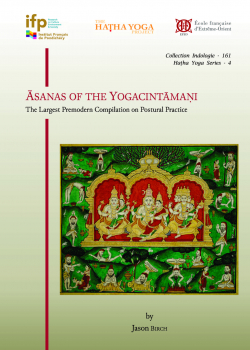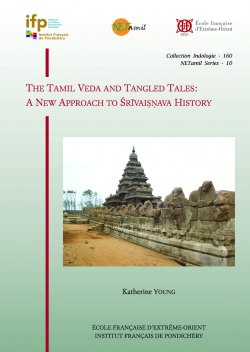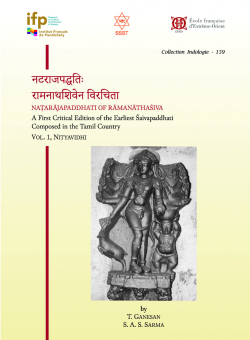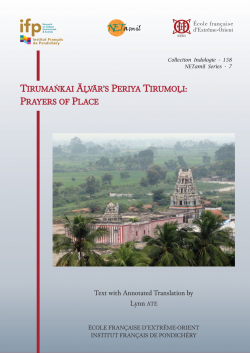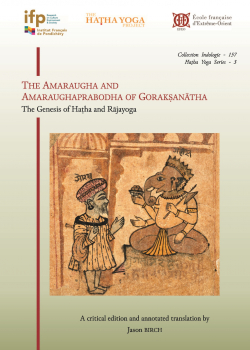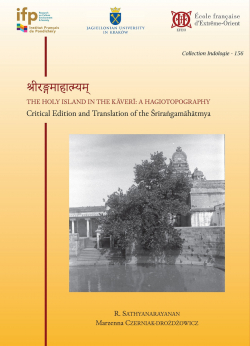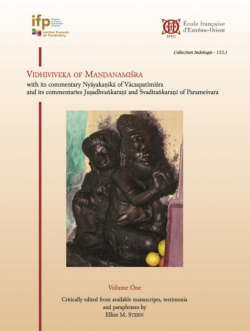The catalog of EFEO Publications includes works on a wide range of disciplines in the humanities and social sciences (archaeology, history, anthropology, literature, philology, etc.), centered on Asia, from India to Japan.
These publications address both specialists, and a wider public interested in Asian civilizations and societies.
The Commentary Idioms of the Tamil Learned Traditions
Collection : Collection Indologie
Collection's number: 141
Editor: Anandakichenin (Suganya), D’Avella (Victor)
Edition: EFEO, Institut français de Pondichéry (IFP)
Publication date: 2020
Status : Available
43,00 €
ISBN-13 : 9782855392363
ISSN : 0073-8352
Width : 17.5 cm
Height : 24.5 cm
Weight : 1.2 kg
Number of pages : 607
Distributor : EFEO Diffusion, EFEO Pondichéry Contact : shanti@efeo-pondicherry.org
Geography : India
Language : English, Tamil
Place : Pondichéry
Support : Papier
Description :
17,5 x 24,5 cm, IV + 603 p. hardcover
Abstract
This volume presents several detailed studies of the commentary traditions of South India with a particular emphasis on Tamil, but extended to Sanskrit and Telugu as well. The importance of commentaries for our understanding of classical Indian languages and their literatures has long been acknowledged, but rarely have the commentaries themselves, especially minor ones, been the subject of systematic study. Contributors to this volume begin to remedy this desideratum in several ways. Some describe the specific methods employed by particular commentators and offer translations of passages, many of which have never before been rendered into English. Others examine what impact ancient commentators have had on the development of modern philological and lexicographical tools. More broadly, the role of the commentary in textual exegesis is taken up by several authors, and, in one case, this has led to an extension of the very notion of a commentary to include translation. This volume will serve as an important reference point for further research into commentarial traditions both in India and around the world.
Table of contents
Preface
Introduction
Notes
You can also order this title with our Pondicherry center at the following address:
shanti@efeo-pondicherry.org
Or with the French Institute of Pondicherry at the following address:
library@ifpindia.org
Orders to India must be placed with our center in Pondicherry or the French Institute of Pondicherry.
About the editor
Anandakichenin (Suganya)
Suganya Anandakichenin, a postdoctoral research fellow at the Centre for the Study of Manuscript Cultures, University of Hamburg, specialises in the Āḻvār bhakti poetry as well as Śrīvaiṣṇava Manipravalam literature.
D’Avella (Victor)
Victor D’Avella is a postdoctoral researcher at the University of Hamburg, working for the international project “Texts Surrounding Texts” (ANR/DFG) and formerly part of the ERC-funded NETamil project. His main area of interest is the linguistic and literary traditions of India with a focus on Sanskrit, Tamil, and Telugu.
Related books
Collection Indologie
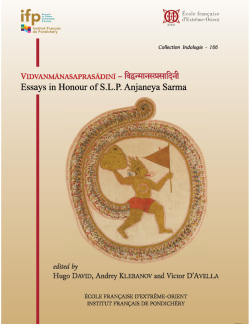
Vidvanmānasaprasādinī
S.A.S. SARMA, Dominic GOODALL, Harunaga ISAACSON, Suganya ANANDAKICHENIN, Hugo DAVID, Kei KATAOKA, Victor D’AVELLA, Giovanni CIOTTI, Andrey KLEBANOV, Émilie AUSSANT, Maria Piera CANDOTTI, Tiziana PONTILLO, Sibylle KOCH, Vincenzo VERGIANI, Timothy C. CAHILL, Somedeva VASUDEVA, Luther OBROCK, M. VINOTH, Maṇi DRĀVIḌA, Akane SAITO, Alex WATSON, Daniele CUNEO, Yūto KAWAMURA
60,00 €
2026
• Available
